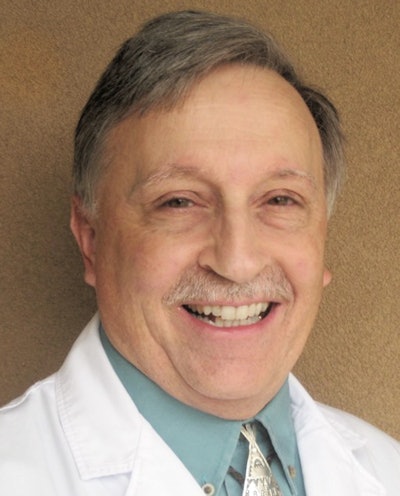
The U.S. Department of Justice (DOJ) and the Connecticut Attorney General's Office have settled with a Connecticut federally qualified health center (FQHC) over alleged dental Medicaid billing abuses of encounter fees, commonly termed "patient churning." The case sheds light on dental fraud in the public sector.
 Dr. Michael W. Davis.
Dr. Michael W. Davis.Government prosecutors claimed that the nonprofit Cornell Scott Hill Health Corp. (CSH) mandated dental Medicaid patients to split the service of their dental exams and prophylactic cleaning on separate days, according to August 11 releases from the DOJ and Connecticut attorney general. The company allegedly implemented the policy to maximize billables per patient encounter. Typically, the two encounters are performed on the same day of service, but CSH would receive two billable encounter fees.
CSH agreed to pay $350,000 to the federal and Connecticut state governments for conduct occurring between January 1, 2017, and December 31, 2019, according to the releases. Additionally, CSH said it will change its policy and offer all Medicaid beneficiaries the option to schedule dental cleanings and examinations on the same day.
The CSH policy caused the Medicaid program to overpay for routine services and burdened patients with additional visits, said Connecticut Attorney General William Tong in the press release.
"This policy had real consequences for their Medicaid patients, including requiring adults and children to take more time off work and/or school, as well as the burden of additional transportation," Tong stated.
Fraud not limited to private sector
Typically, FQHCs do not bill Medicaid per specified dental procedure, as occurs in the private sector. Instead, a specific dollar amount is negotiated between the FQHC and the state as a patient "encounter rate." All dental treatment provided to a Medicaid patient on a given day generates a fixed "encounter fee."
Fraud may occur when the FQHC establishes a policy to schedule multiple dental visits for dental procedures generally delivered in one patient visit. As Attorney General Tong highlighted, this practice is abusive to disadvantaged patients and their caregivers. It also defrauds taxpayers.
The U.S. Department of Health and Human Services Office of Inspector General (HHS-OIG) has clarified in four separate reports that the bulk of outlier billers originate from large group practices within the private sector. The HHS-OIG has also highlighted the failure of managed care organizations to report outlier billings to state authorities.
Unfortunately, this may all lead to a major misconception that dental Medicaid fraud is exclusively generated within the private sector. But the public sector absolutely has its own share of bad actors.
The operation of public sector dental clinics can be highly lucrative for those at the top, with executives receiving compensation that stretches well past $1 million in a single tax year. It's unfortunately not unheard of for some of the largest dental FQHCs to have business models and policies that breach state and federal statutes.
Civil fines and penalties of violations within the nonprofit sector are paltry, compared with the money generated -- as well as the annual compensation -- for leading company officers and directors. The same might also be said for private sector dental Medicaid fraudsters.
Enforcement in the public sector must ideally include both civil and criminal charges. Meager settlements only serve to perpetuate fraud as a preferred business model. Enabling dysfunctional dental Medicaid FQHCs with wrist-slap penalties is not a viable answer.
The fact is that such white-collar crime harms taxpayers and already disadvantaged Medicaid populations. Government authorities could best assist our at-risk citizens by closing down fraudulent Medicaid clinics, no matter their size, and bringing criminal charges against top-level administrators. Otherwise, there is little motivation or incentive for reform.
Dr. Michael W. Davis practices general dentistry in Santa Fe, NM. He also provides attorney clients with legal expert witness work and consultation. Davis also currently chairs the Santa Fe District Dental Society Peer Review Committee. He can be reached at [email protected] or SmilesofSantaFe.com.
The comments and observations expressed herein do not necessarily reflect the opinions of DrBicuspid.com, nor should they be construed as an endorsement or admonishment of any particular idea, vendor, or organization.



















